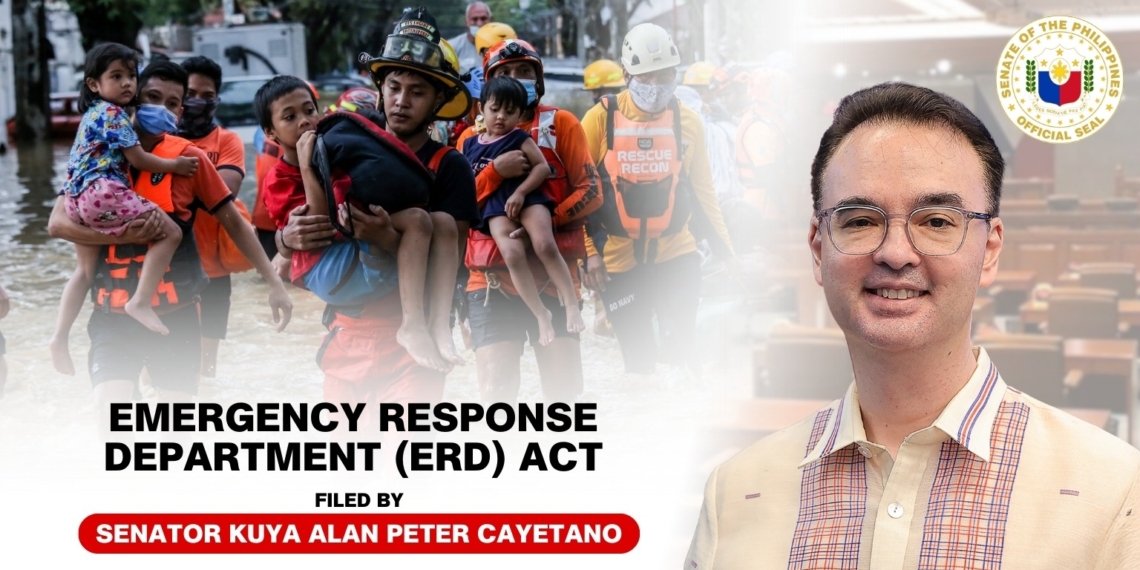Senator Alan Peter Cayetano on Thursday refiled a refined version of the proposed Emergency Response Department (ERD) Act, citing the urgent need for a full-time, centralized agency that will lead the country’s disaster risk reduction and humanitarian emergency response efforts.
The updated bill aims to institutionalize a more efficient, science-based, and people-centered approach to managing emergencies and disasters.
“Our people are the nation’s greatest asset, so every disaster risk reduction and management effort must always prioritize their humanitarian needs,” Cayetano said.
One of the key additions to the revised bill is the continuation and enhancement of the 911 Nationwide Emergency Hotline system. Originally established under Executive Order No. 56, series of 2018, the system will now be placed under the supervision of the proposed department.
The National Disaster Risk Reduction and Management Council (NDRRMC) and the Office of Civil Defense (OCD) will be subsumed under the ERD, consolidating their powers and functions into the new department.
As a centralized agency, the ERD will be tasked with planning, coordinating, and supervising the government’s overall disaster risk reduction and humanitarian emergency assistance program.
It will oversee the operations of Regional Emergency Response Offices (REROs) and Local Emergency Response Offices (LEROs) nationwide to ensure a unified and timely response down to the barangay level.
The measure emphasizes a “simplified, strategic, continuous, and inclusive” approach to disaster preparedness, guided by scientific data and the principles of “Build Right at First Sight” and “Anticipatory Action.”
Another major feature of the bill is the creation of the Humanitarian Emergency Assistance and Disaster Fund (HEAD Fund), which will receive at least one percent of the government’s estimated regular revenue or P25 billion, whichever is higher.
This fund will be readily available for immediate mobilization during calamities or in areas under a state of imminent disaster.
Cayetano, who has been advocating for this measure since 2013, reiterated the need for a full-time department with the capacity and mandate to respond swiftly and effectively during crises.
“Emergency measures are a step towards long-term development. We have to seriously consider establishing an Emergency Response Department or we risk leaving our kababayan vulnerable during disasters,” Cayetano said.
“We may not be able to stop disasters, but we can empower ourselves with knowledge, training, education, equipment, tools, and the right infrastructure to cope with disasters so many lives would not be lost and there would be less devastation,” he added.






